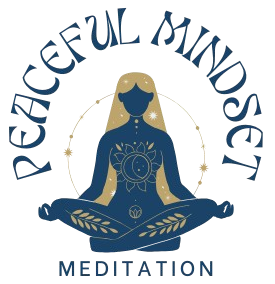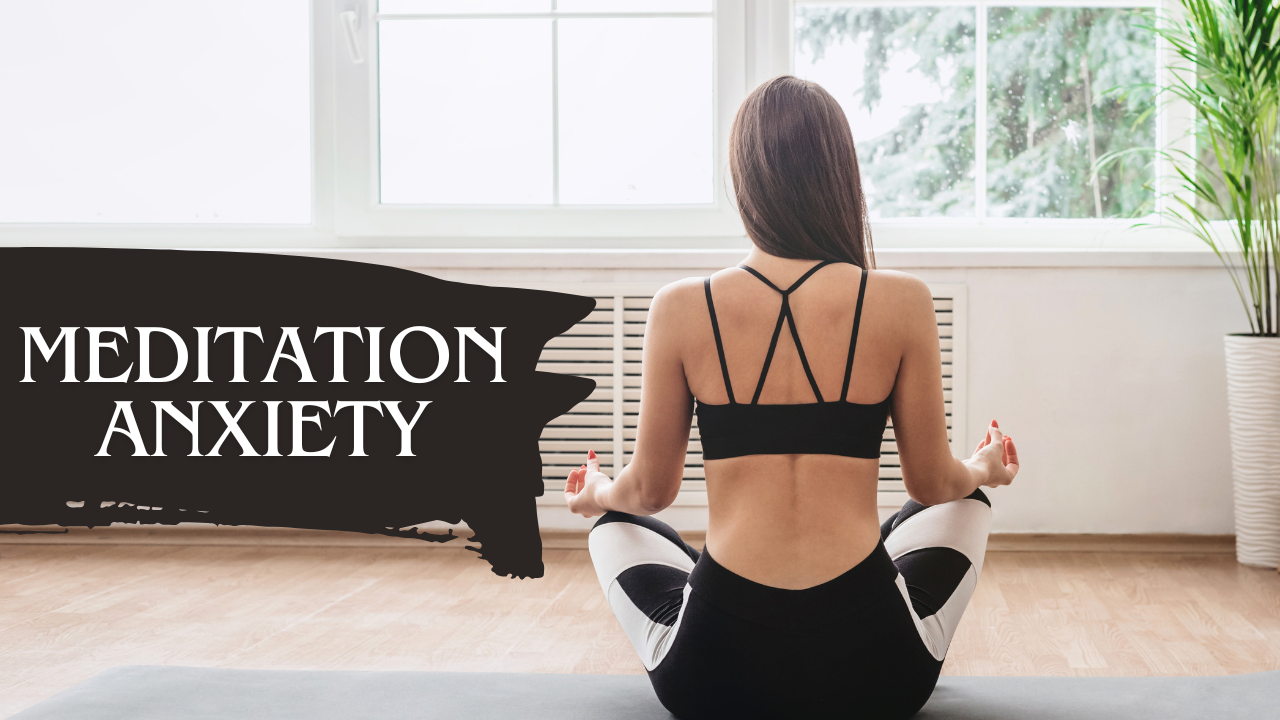Meditation for Anxiety: Finding Calm Peace in the Midst of Chaos
Many individuals experience anxiety at some point in their lives. Meditation for Anxiety can help when it feels like a never-ending burden that saps your energy and peace of mind, whether caused by job pressure, personal issues, or the everyday demands of life.
You are not alone if ever stress has caused your heart to race, your thoughts to swirl, or your body to stiffen up.
What if, however, a straightforward, easily available instrument might enable you to find serenity in times of trouble by lowering the severity of anxiety?
Meditation fits in there. A strong tool for calming your mind, anchoring yourself in the present, and lessening the physical and emotional manifestations of anxiety is meditation.
This post will look at how meditation helps with anxiety, its advantages, and how you may begin using it to control anxiety more successfully.
What is Meditation for Anxiety?
Meditation for anxiety is the practice of using mindfulness and breathing exercises to control anxious thoughts, emotions, and bodily symptoms. Rather than becoming lost in concerns about the future or regrets from the past, meditation is a practice that helps you to concentrate on the present moment.
Meditation is just training your mind to be more conscious of your feelings and ideas without letting them consume you.
This technique lets you respond to anxiety with more calm and clarity by helping you to build distance between you and your worried thoughts.
Meditation can be done using various methods, including breath awareness, mantra repetition, and just mental observation. The aim is to assist you in calming your nervous system, lowering the severity of anxiety, and focusing your attention on a location of tranquility.
READ MORE: Mindful Meditation
Why Does Meditation Help with Anxiety?
Our inclination to concentrate on worst-case scenarios or overanalyze events causes anxiety. Meditation for Anxiety can help calm racing thoughts and reduce the physical symptoms of anxiety, such as increased heart rate, shallow breathing, and muscle tension.
Focusing your attention on something calming—like your breath, a mantra, or the present moment—helps meditation to break this pattern. Meditation is quite good for lowering anxiety for the following reasons:
- Calms the Nervous System: When you meditate, you activate the parasympathetic nervous system (also known as the “rest and digest” system), which helps counter the fight-or-flight response that anxiety triggers. This lowers your heart rate, relaxes your muscles, and helps reduce the physical symptoms of anxiety.
- Encourages Mindfulness: Meditation helps you become more aware of your thoughts and emotions, which is the first step in reducing anxiety. Instead of trying to push your anxious thoughts away, meditation encourages you to observe them without judgment. This helps you detach from your anxiety and realize that you don’t have to react to it.
- Reduces Overthinking: Anxiety often involves spiraling thoughts, where one worry leads to another. Meditation can help you break this cycle by bringing your attention to the present moment. By focusing on your breath or another anchor, you can stop the cascade of anxious thoughts.
- Improves Emotional Regulation: Regular meditation can help you develop emotional resilience. As you practice mindfulness and awareness, you become more capable of managing your emotions, rather than letting them control you. This makes it easier to cope with anxiety when it arises.
The Benefits of Meditation for Anxiety
In addition to reducing the intensity of anxiety, meditation offers a wide range of other benefits that can improve your mental, emotional, and physical health:
- Lower Stress Levels: Meditation is well-known for its ability to reduce stress. By activating the relaxation response, meditation helps lower cortisol levels (the stress hormone), making you feel more relaxed and less overwhelmed.
- Improved Focus and Concentration: Meditation trains your mind to stay focused on the present moment, which can improve your ability to concentrate. This can be particularly helpful for people who experience anxiety related to work, studies, or other commitments.
- Better Sleep: Anxiety often disrupts sleep, but meditation can help you unwind and relax before bedtime. Practicing meditation before sleep can calm your mind, making it easier to fall asleep and stay asleep throughout the night.
- Increased Self-Awareness: Meditation encourages introspection and self-awareness. By regularly checking in with your thoughts and emotions, you gain a deeper understanding of your anxiety triggers and how to manage them.
- Greater Emotional Balance: Meditation can help you create emotional balance by teaching you to observe your emotions without reacting impulsively. Over time, this helps you become more emotionally stable and better equipped to handle anxiety.
How to Start Meditating for Anxiety
If you’re new to meditation, it might feel a bit intimidating at first. But the truth is, meditation is simple, and you don’t need any special skills or equipment to begin. Here’s a step-by-step guide to get started with meditation for anxiety:
1. Create a Calm Environment
Find a quiet space where you won’t be disturbed. This could be a corner of your room, a park, or even your car. Make sure you’re comfortable, and turn off any distractions like your phone or television. If it helps, you can dim the lights or play calming music in the background.
2. Get Comfortable
Sit in a comfortable position. You can sit on a chair, cushion, or the floor—whatever feels best for you. Keep your back straight and your shoulders relaxed. You can place your hands on your knees or in your lap, with your palms facing up or down.
If sitting isn’t comfortable, you can also lie down. The key is to be relaxed and supported so you can focus on your breath without physical discomfort.
3. Focus on Your Breath
Start by taking a few deep breaths. Inhale slowly through your nose, allowing your belly to expand as you fill your lungs with air. Then exhale slowly through your mouth, letting go of any tension. Focus on the sensation of your breath entering and leaving your body.
As you breathe, try to quiet your mind. It’s normal for your thoughts to wander, but when they do, gently bring your focus back to your breath. If you find it difficult to concentrate, you can count your breaths: inhale for a count of four, hold for a count of four, and exhale for a count of four.
4. Use a Mantra (Optional)
If your mind keeps wandering or if you find it difficult to calm your thoughts, you can use a mantra to help keep your focus. A mantra is simply a word or phrase that you repeat silently to yourself. It could be something as simple as “calm,” “peace,” or “I am safe.” Whenever your mind starts to wander, return your focus to your mantra.
5. Practice Mindfulness
Mindfulness is the practice of being fully present in the moment. As you meditate, notice any thoughts, feelings, or sensations that arise. Don’t judge them or try to push them away—simply observe them. Recognize that your anxious thoughts are just thoughts; they don’t define you, and they don’t control you.
Whenever you feel anxiety creeping in, acknowledge it, breathe through it, and remind yourself that it’s okay to feel anxious. Your meditation practice is not about eliminating anxiety but about learning to be with it calmly.
6. End Slowly
When practicing Meditation for Anxiety, don’t rush as you finish your session. Slowly bring your awareness back to the room, open your eyes, stretch your body, and take a few deep breaths. Take a moment to appreciate the stillness and calm you’ve created.
Tips for Meditation and Anxiety
- Start Small: If you’re new to meditation, start with just 5 minutes a day. As you become more comfortable, you can increase the duration.
- Be Consistent: Meditation is most effective when practiced regularly. Try to set aside time each day, even if it’s just a few minutes, to meditate and manage your anxiety.
- Be Gentle with Yourself: If your mind wanders, don’t be hard on yourself. It’s normal for your thoughts to drift. Just gently return your focus to your breath or mantra.
- Use Guided Meditation: If you’re unsure how to meditate, you can use guided meditation apps or videos. These provide step-by-step instructions to help you stay focused and calm.
Conclusion
Meditation for Anxiety is a simple yet powerful tool for managing stress and anxious thoughts. By focusing on your breath, becoming more mindful of your thoughts, and practicing self-compassion, you can reduce anxiety and create a sense of inner peace. While it may take time and practice to feel the full benefits, the more you meditate, the easier it becomes to stay calm in the face of stress.
If you’re struggling with anxiety, don’t wait to try meditation. It’s a safe, natural, and effective way to find peace in the midst of chaos. So, take a deep breath, find a quiet space, and start your journey toward a calmer, more balanced life today.


